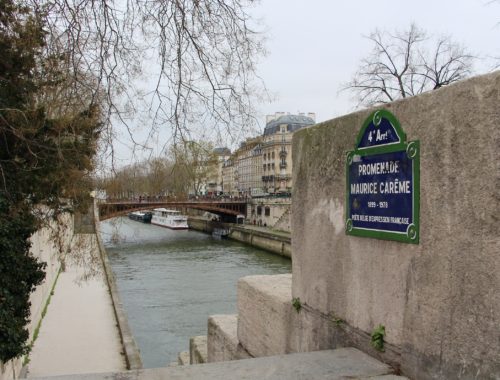
How to Ensure Your French Degree Isn’t a Scam in Disguise
Pursuing higher education is a big undertaking – especially when you decide to do so in a foreign country. Jalen and I completed master’s degrees at the Université de Reims Champagne-Ardenne in Reims, France and can tell you that it isn’t for the faint of heart! Our graduate degrees included quality classroom instruction and worthwhile work experience that culminated in legitimate diplomas, all of which helped us find full-time jobs in France as Americans. Unfortunately, not everyone who studies in France has this experience. Imagine investing years of your time and energy to get your hands on what you believe is a valuable diploma only to find out that it’s worthless. Not all degrees offered by schools in France are of equal quality, and it’s vital to be sure you know what you’re getting yourself into to avoid any unpleasant surprises down the road. Read on to learn how you can find out if a French degree is actually worth your while.
State-Approved Schools
When choosing a program in France, the first thing to consider is whether the school is reconnu par l’État (approved by the state). This approval guarantees that the school is equipped to grant legitimate diplomas for the programs they offer. For example, public universities, by nature of their public status, are all state-approved. Moreover, many private schools are sous contrat (have a state contract), making them state-approved as well. There are, however, private schools hors contrat (without a state contract) that aren’t recognized by the state at all. These schools often offer what are called titres d’école (school-specific qualifications) that have no official accreditation. To further muddy the waters, some private schools offer both diplômes nationaux (accredited diplomas) and titres d’école. So, how do you tell the difference?
Legitimate Programs
According to Campus France, diplômes nationaux can be broken down into five categories of diplomas.
- The first category of diplomas includes those granted by French public universities, including, but not limited to, licences and licences professionnelles, masters, and doctorats.
- The second category covers the titre d’ingénieur granted by the Commission des titres d’ingénieurs (CTI).
- The third category involves diplomas from business and management schools that have obtained a visa from the Commission d’évaluation des formations et diplômes de gestion (CEFDG).
- The fourth category encompasses the programs listed in the Répertoire national des certifications professionnelles (RNCP).
- The fifth category takes into account specific programs that have obtained a visa from the
ministère de l’Enseignement supérieur, de la Recherche et de l’Innovation (MESRI).
If you’re interested in a program that doesn’t fall into these categories, you should be aware of the pitfalls. As Campus France points out, while your studies could have some value on the job market, you won’t be getting an accredited diploma at the end, which has real consequences. For instance, if you complete undergraduate studies but don’t obtain an accredited diploma, you won’t be able to apply for master’s programs in France that require a licence.
Tricky Wording
As if understanding these complexities wasn’t enough, some private schools deliberately use confusing language to imply that their programs end in diplômes nationaux when, in reality, they don’t. By using titles that aren’t regulated by the state, like “bachelor,” “mastère,” “mastaire,” “master of,” and “MBA,” but are similar to the titles of accredited diplomas, these schools lead students to believe that they’ll graduate with a licence or master, which is not necessarily the case. Some schools even boast that they are certifié par l’État (certified by the state), a made-up credential that means absolutely nothing! These schools profit off of students who don’t know any better, duping them into enrolling – and often paying hefty fees – under hollow pretenses. You can find yourself in a real predicament come graduation if you fall into one of these traps, so it’s worth verifying the legitimacy of programs that use these offbeat titles.
Meaningful Outcomes
After you’ve decided that the validity of a diploma is up to your standards, you still have one more factor to consider – what can you do with it after graduation? The débouchés (job prospects) and insertion professionnelle (employability) of a program count for a lot. After all, the overarching point of furthering your education is to use what you’ve learned in the workplace! However, even programs that are 100% legitimate in the eyes of the state don’t guarantee that you’ll quickly find work in your desired field post graduation. Information about débouchés and insertion professionnelle can usually be found on the school’s website, but if you can’t find it yourself, we highly recommend you reach out to the school to find out more. It’s crucial to make sure that your professional goals line up with the realities of life after your degree.
Note that if your post-grad plan includes applying for the recherche d’emploi ou création d’entreprise residence permit (RECE) after your studies like we did, you also need to check that your degree program qualifies.
Ultimately, it’s up to you to decide which French program is right for your needs. Whether you want to continue your studies in France or find a job afterwards, we are convinced that it’s a good idea to choose a program that will grant you a diploma backed by the government. Whatever you pick, make your decision based on in-depth research and thorough reflection so that your degree brings you one step closer to your goals! If you have any questions or want to know more, let us know in a comment.
You may also like…
Discover the best parts of getting a master’s degree in France!
Discover the worst parts of getting a master’s degree in France!
You May Also Like

Why French Private Schools Aren’t Always the Better Choice
May 3, 2023
A Candid Review of Year One in French Graduate School
August 25, 2021


3 Comments
Deepak D
Hello
Does any university provides distance / online master degree (MSc, MBA) or PhD – Computer Science ?
Thank you
Jalen & Maria
Hello, you can use this resource from Campus France to find out about online options.
Halli
The info here is the best I have read on French master’s degrees:
https://thefrancofile.net/how-to-ensure-your-french-degree-isnt-a-scam-in-disguise/
Can I ask you a few related questions?
Halli.